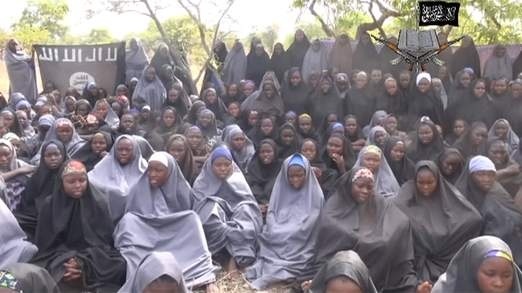It has been nearly a year since the Islamist extremist group Boko Haram kidnapped 276 girls from their school in the town of Chibok in northern Nigeria on April 14, 2014. This week, on the website for the Office of the United Nations Special Envoy for Global Education, I will be publishing pictures of the missing girls. I expect many will find the photographs shocking; they reveal just how young and vulnerable the kidnapped children are. At the time of their abduction, the girls were 14, 15, and 16 years old.
They were seized while studying for their exams. They wanted to become nurses, doctors, and teachers. Instead, they are now about to enter their second year of imprisonment. It is for this crime, and others like it, that the Global Coalition to Protect Education from Attack has developed Guidelines for Protecting Schools and Universities from Military Use during Armed Conflict, to which all countries are being called on to commit at an international conference in June.
Under the new guidelines, educational establishments would be designated as safe havens, deserving protection in exactly the same way that the Geneva Conventions protect Red Cross hospitals. Abducting students from schools would become a “trigger violation,” leading to automatic inclusion on the list of terrorist organizations that the UN Secretary-General submits annually to the Security Council. Similarly, the Safe Schools Initiative is seeking to protect children when they are at school. Established in Nigeria in May 2014, the initiative is now spreading into Pakistan. The program, which promotes security measures in schools, including gate guards, better fortifications, and surveillance equipment, has the support of the governments of Nigeria, the United States, and the United Kingdom.
The need for such initiatives is evident. In the year since the kidnappings in Nigeria, the number of attacks on schools and students across Africa and Asia has increased. Assaults on educational institutions are becoming part of a sinister pattern. Criminals craving the publicity that comes from violating innocent young people’s lives have been responsible for 10,000 attacks on schools over the past five years. In the last four months, these criminal acts have escalated. In Pakistan, 132 students were killed in an attack on a school in December.
In South Sudan, children are being abducted from schools to serve as child soldiers. And just last week in Kenya, gunmen from the Somali terrorist group Al-Shabab attacked a college near the Somali border, killing at least 148 people. April 7 marked the start of a weeklong tribute to the abducted school girls in Nigeria, which will include vigils, marches, demonstrations, letter-writing, and petitions. Schools in Nigeria will organize marches under the Global School Girl March banner.
At the same time, the newly formed Chibok Girls Ambassadors – schoolgirls aged 10-18 who have volunteered their time – will join with the World at Schools Global Youth Ambassadors to organize vigils in 100 countries in support of the girls. In Pakistan, girls in the child-marriage-free zones set up by Idara-e-Taleem-o-Aagahi will carry out a vigil for the Nigerian schoolgirls. And, around the world, members of Global March Against Child Labor will march in sympathy. For nearly a year, the parents of the kidnapped girls have had to wake up every morning not knowing whether their daughters are alive or dead, whether they have been sexually violated, injured, or sold into slavery.
Many of these girls were separated from their families for the first time. Some may have already been married off. Some may have been sold. And some may have been murdered. The passage of time has not made a rescue attempt more likely to succeed. The girls have been divided into a number of groups.
The liberation of one group might lead to the murder of the other girls. Nonetheless, this week’s show of solidarity will demonstrate the strength of what is essentially a global struggle for civil rights. The girls of Chibok must not be abandoned, neglected, or forgotten, in this, their greatest hour of need. A year ago, the cry heard around the world was “Bring Back Our Girls.” We must now redouble our efforts to make sure that we do.

